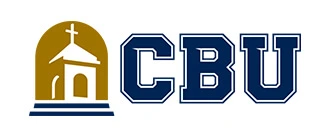Start your path toward a career in corporate, governmental, or managerial accounting with the studies offered in the online Bachelor of Arts in Accounting program at California Baptist University. Read on for more details.
<h2 id="section---FrequentlyAskedQuestions">Frequently Asked Questions</h2>
<h3 id="section---WhatKindOfProgramIsIt">What Kind of Program Is It?</h3>
<p>From accounting systems to tax accounting, the online Bachelor of Arts in Accounting program at California Baptist University is designed to address various practices and processes within the accounting and finance fields. You will begin by taking two introductory accounting courses that cover basic accounting cycles, corporate and managerial accounting principles, and decision-making processes based on accounting information. From there, further accounting coursework addresses more complex and advanced accounting issues, with a focus on cash flow, investing, inventory, long-term liabilities, foreign currency exchange, and financial reporting. Other accounting classes provide discussions regarding budgeting and cost accounting, automated accounting systems, auditing concepts, accounting ethics, and organizational accounting for government and non-profit entities. Business courses address business law, financial management, policy development, leadership, human resource management, and international business practices.
</p>
<h3 id="section---WhatAreThePrerequisites">What Are the Prerequisites?</h3>
<p>Prerequisite courses in composition and intermediate algebra must be completed before starting on the BA in Accounting curriculum. You should possess strong analytical, math, and critical thinking skills, as these are abilities relevant to performing accounting duties in any type of setting. Applicants to California Baptist University should have a high school diploma or GED; some programs may have additional requirements.
</p>
<h3 id="section---WhatAreTheCourseRequirements">What Are the Course Requirements?</h3>
<p>To earn this bachelor's degree, you will be required to complete 15 credits in lower-division courses, 27 credits in upper-division business courses, and 24 credits in upper-division accounting coursework. Additional requirements are completing a three-credit Bible overview class and 40-43 credits in the general education curriculum.
</p>
<p><u>Lower Division Requirements</u>
</p>
<p />
<table border="1"><tr><th>Course Code</th><th>Course Title</th></tr>
<tr><td>ACC 250</td><td> Principles of Accounting I</td></tr>
<tr><td>ACC 251</td><td> Principles of Accounting II</td></tr>
<tr><td>BUS 217</td><td> Microeconomics</td></tr>
<tr><td>BUS 218</td><td> Macroeconomics</td></tr>
<tr><td>CIS 270</td><td> Business IT Application</td></tr>
</table><p><u>Upper Division Business Requirements</u>
</p>
<p />
<table border="1"><tr><th>Course Code</th><th>Course Title</th></tr>
<tr><td>BUS 237 <br /> <br /> BUS 337</td><td>Management Based on Biblical Principles <br /> <b>OR</b> <br /> Management with Biblical Foundation</td></tr>
<tr><td>BUS 303</td><td> Business Finance</td></tr>
<tr><td>BUS 315</td><td> Business Statistics</td></tr>
<tr><td>BUS 334</td><td> International Business</td></tr>
<tr><td>BUS 358</td><td> Business Law</td></tr>
<tr><td>BUS 440</td><td> Quantitative Business Analysis</td></tr>
<tr><td>BUS 463</td><td> Business and Organizational Management</td></tr>
<tr><td>BUS 485</td><td> Business Policy and Strategy</td></tr>
<tr><td>MKT 333</td><td> Principles of Marketing</td></tr>
</table><p><u>Upper Division Accounting Requirements</u>
</p>
<p />
<table border="1"><tr><th>Course Code</th><th>Course Title</th></tr>
<tr><td>ACC 310</td><td> Intermediate Accounting I</td></tr>
<tr><td>ACC 311</td><td> Intermediate Accounting II</td></tr>
<tr><td>ACC 320</td><td> Cost Accounting</td></tr>
<tr><td>ACC 330</td><td> Government and Non-Profit Accounting</td></tr>
<tr><td>ACC 410</td><td> Advanced Accounting</td></tr>
<tr><td>ACC 420</td><td> Accounting Information Systems</td></tr>
<tr><td>ACC 430</td><td> Federal Income Tax</td></tr>
<tr><td>ACC 470</td><td> Auditing</td></tr>
<tr><td>ACC 480</td><td> Accounting Ethics</td></tr>
</table><p><u>Additional Program Requirements</u>
</p>
<p />
<table border="1"><tr><th>Course Code</th><th>Course Title</th></tr>
<tr><td>CST 100</td><td> Overview of the Bible</td></tr>
</table><h3 id="section---WhatCouldIDoAfterIGraduate">What Could I Do After I Graduate?</h3>
<h4 id="section---CareerOpportunities">Career Opportunities</h4>
<p>From opportunities in corporate finance departments to junior or mid-management positions in accounting firms, there are several avenues you might explore after graduating from the online Bachelor of Arts in Accounting program. You might play a role in creating departmental budgets, performing audits, creating financial reports, generating ledgers, or submitting cash flow or other financial statements. Some positions might require that you possess a Certified Public Accountant (CPA) or Certified Management Accountant (CMA) credential.
</p>
<p>Positions you could be prepared to fill include:
</p>
<ul><li>Tax examiner
</li><li>Public accountant
</li><li>Internal auditor
</li><li>Corporate accountant
</li></ul><h4 id="section---AdvancedDegrees">Advanced Degrees</h4>
<p>If you wish to take on greater responsibilities in the field, you may seek to obtain a master's degree following completion of the BA - Accounting program. Master's degree studies in finance and accounting could further expose you to topics in international accounting practices, financial modeling, accounting systems and databases, risk assessment, and forensic accounting.
</p>
<p>Some of the most common master's degrees you might go on to earn include:
</p>
<ul><li>Master of Science in Accounting
</li><li>Master of Science in Finance
</li><li>Master of Business Administration - Accounting</li></ul>


.svg)


